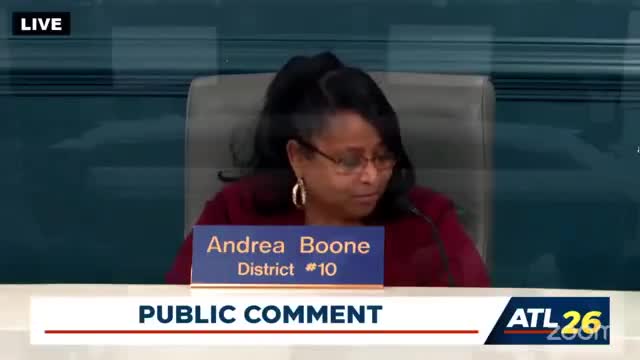Article not found
This article is no longer available. But don't worry—we've gathered other articles that discuss the same topic.
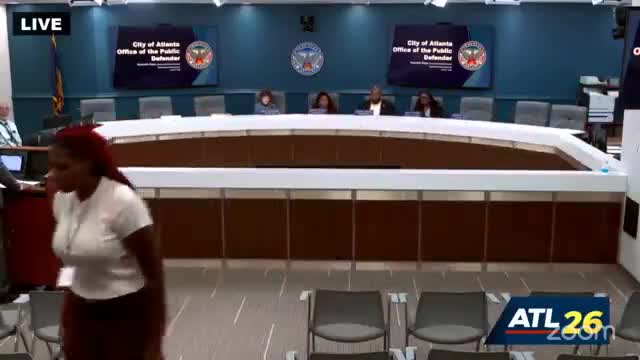
Office of the Public Defender reports legal clinics, housing referrals and employment placements
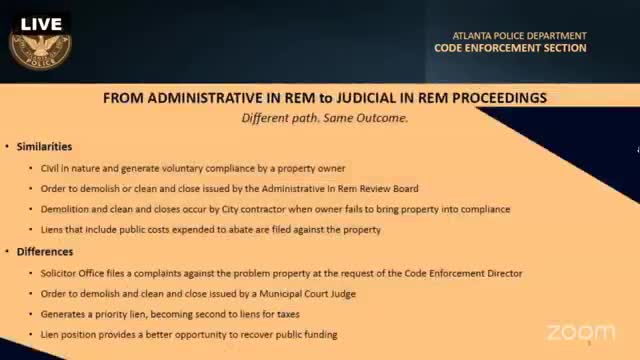
Code enforcement shifts to judicial interim process, reports demolitions and clean-and-close wins
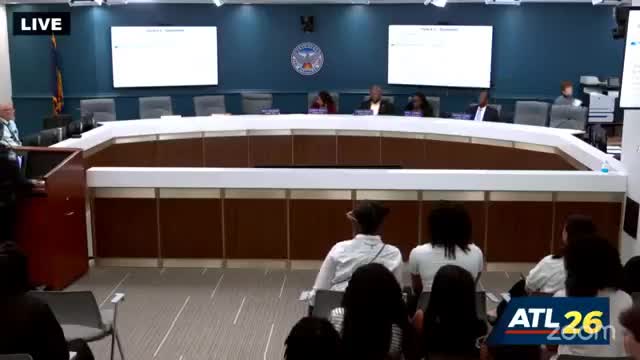
Atlanta Police Department reports overall crime down 11% but specific increases in robberies and sexual assaults
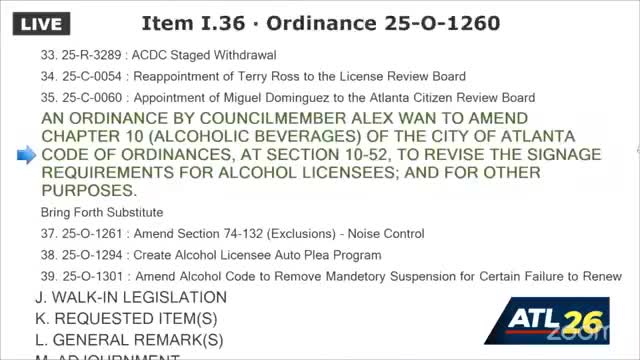
Committee advances ordinance shortening alcohol-license sign posting to seven days
